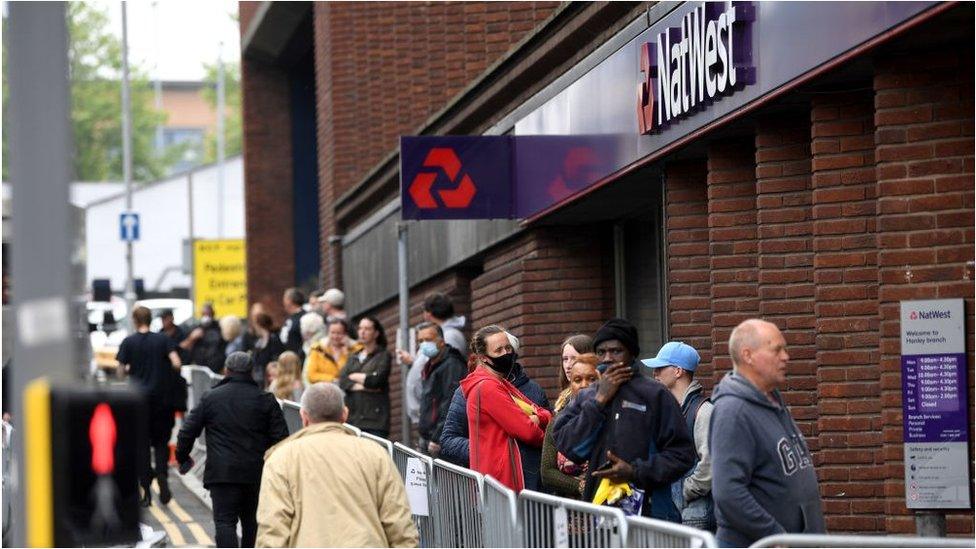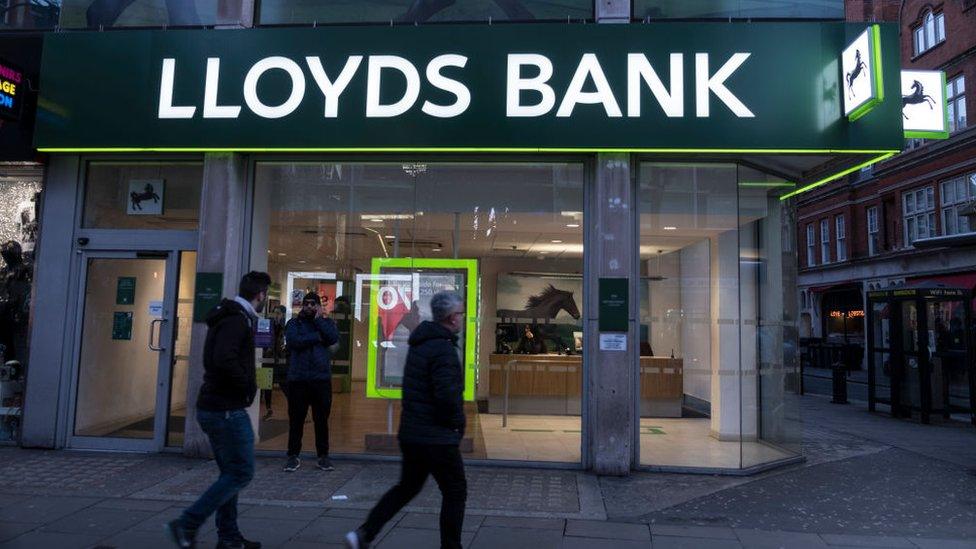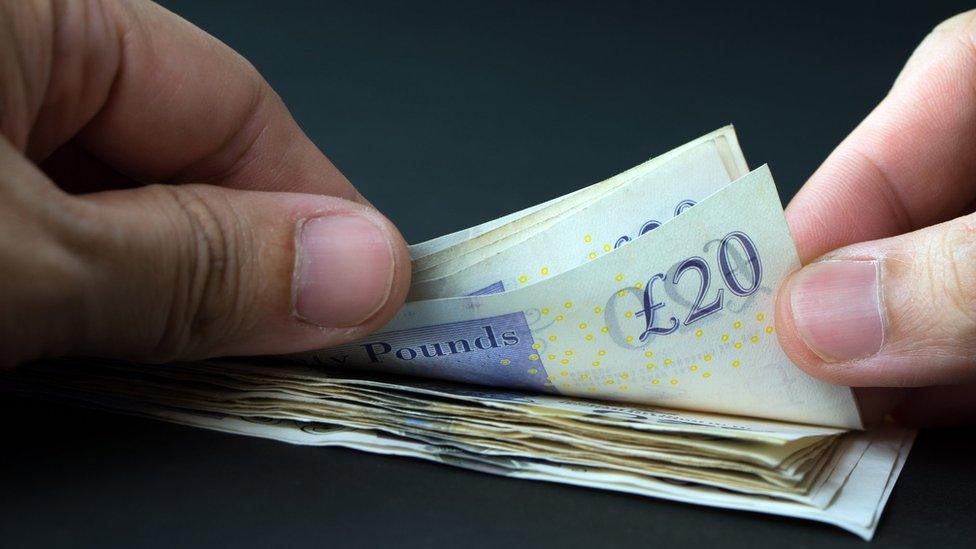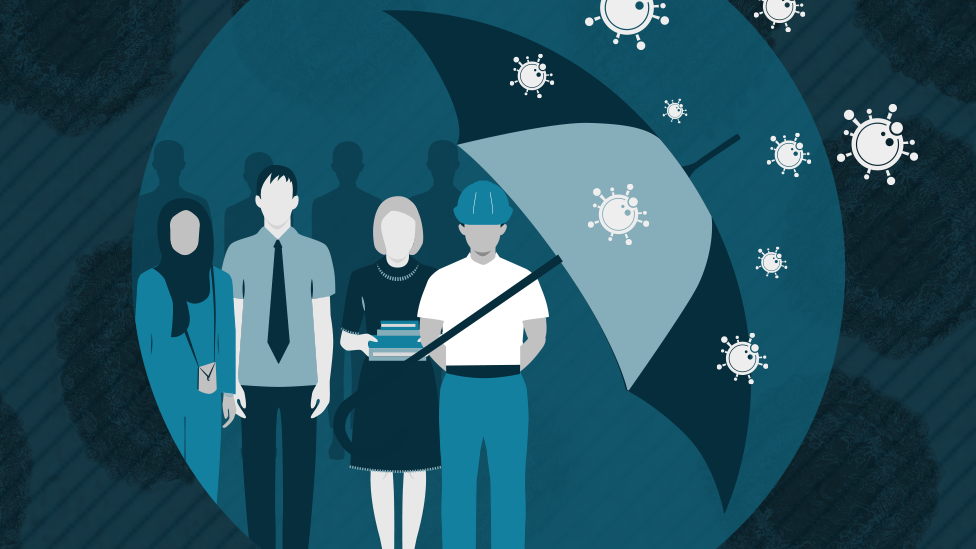NatWest warns of 'challenging times' amid surprise profit
- Published
- comments

NatWest posted an unexpected profit but warned of "challenging times" ahead for the business.
It posted a £355m profit before tax for July to September. City-watchers had anticipated that the bank would have set aside more money for bad loans.
The lender, formerly known as Royal Bank of Scotland, put by £254m for expected loan losses.
The four largest UK banks all set aside less than expected as government help kept businesses and households afloat.
But some of the largest assistance programmes, such as the furlough scheme, is due to come to an end.
"Challenging times lie ahead, especially as the current government support schemes come to an end and as new Covid-19 related restrictions are introduced," said NatWest chief executive Alison Rose.
She hailed the bank's capital strength and access to cash, but warned that while bad loans were low, "the full impact of Covid-19 remains very unclear."
The shares rose 6% in early London trading on Friday, but in common with most lenders, the bank's share price is still much lower than before the pandemic.
Donald Brown, senior investment manager at Brewin Dolphin, said: "The market clearly remains pessimistic about NatWest's immediate prospects, with the shares still around 50% below where they started the year."
As well as the risk of bad loans, lenders are under pressure in the shape of the difference they make between borrowing from depositors and lending to borrowers.
The Bank of England cut rates to a new low of 0.1% in March and some analysts think negative rates could be on the horizon.
That means smaller margins as the central bank demands that loan rates are chopped.
NatWest's net interest margin dipped slightly to 1.65%.
In light of these pressures, there has been speculation that banks may start charging for current accounts which are in credit, something that has not been commonplace in the UK for decades.
While HSBC has indicated that it might consider the move, Ms Rose said there were "no plans to do so at the moment".
- Published25 October 2020

- Published15 October 2020

- Published30 September 2021
